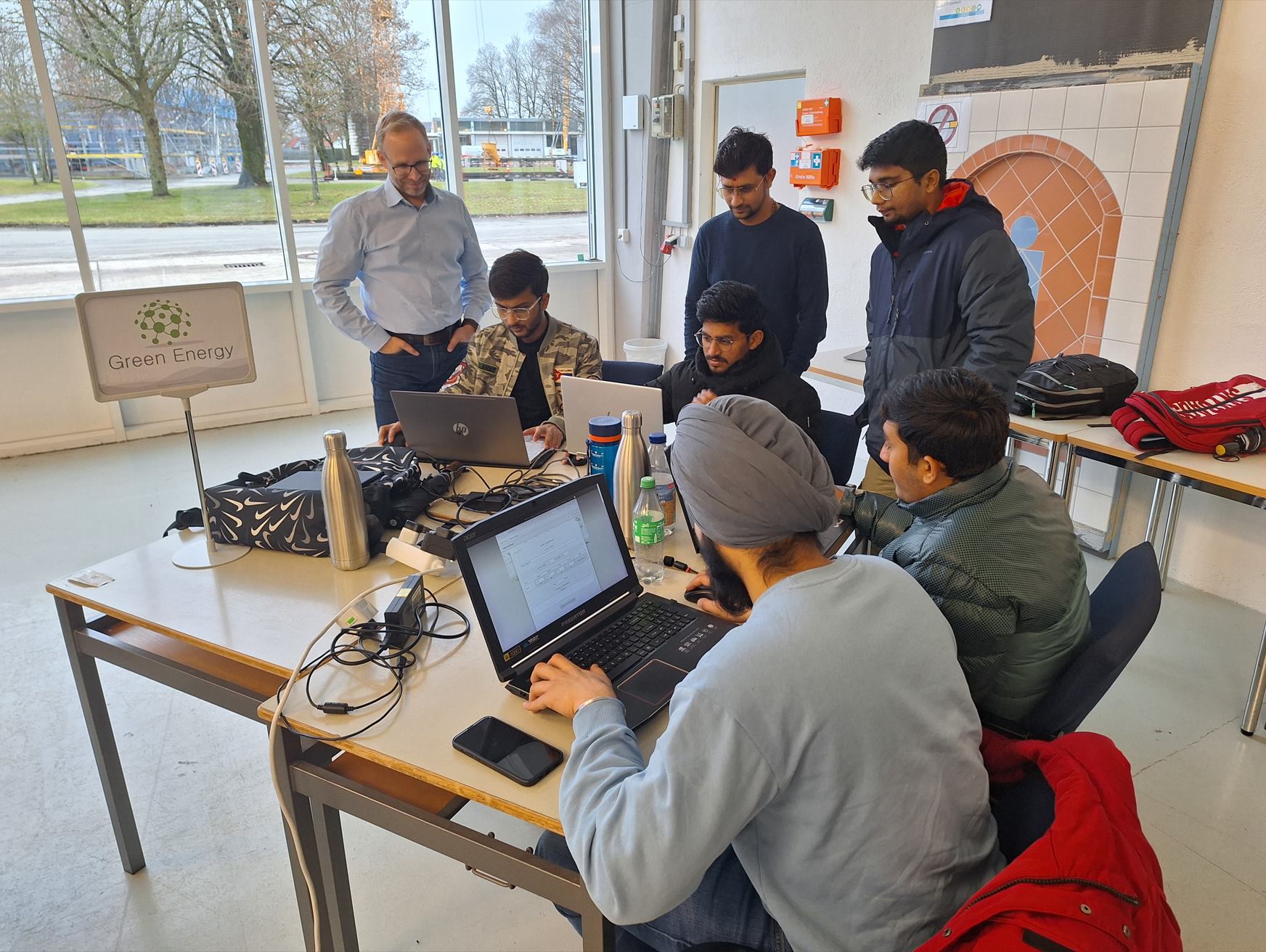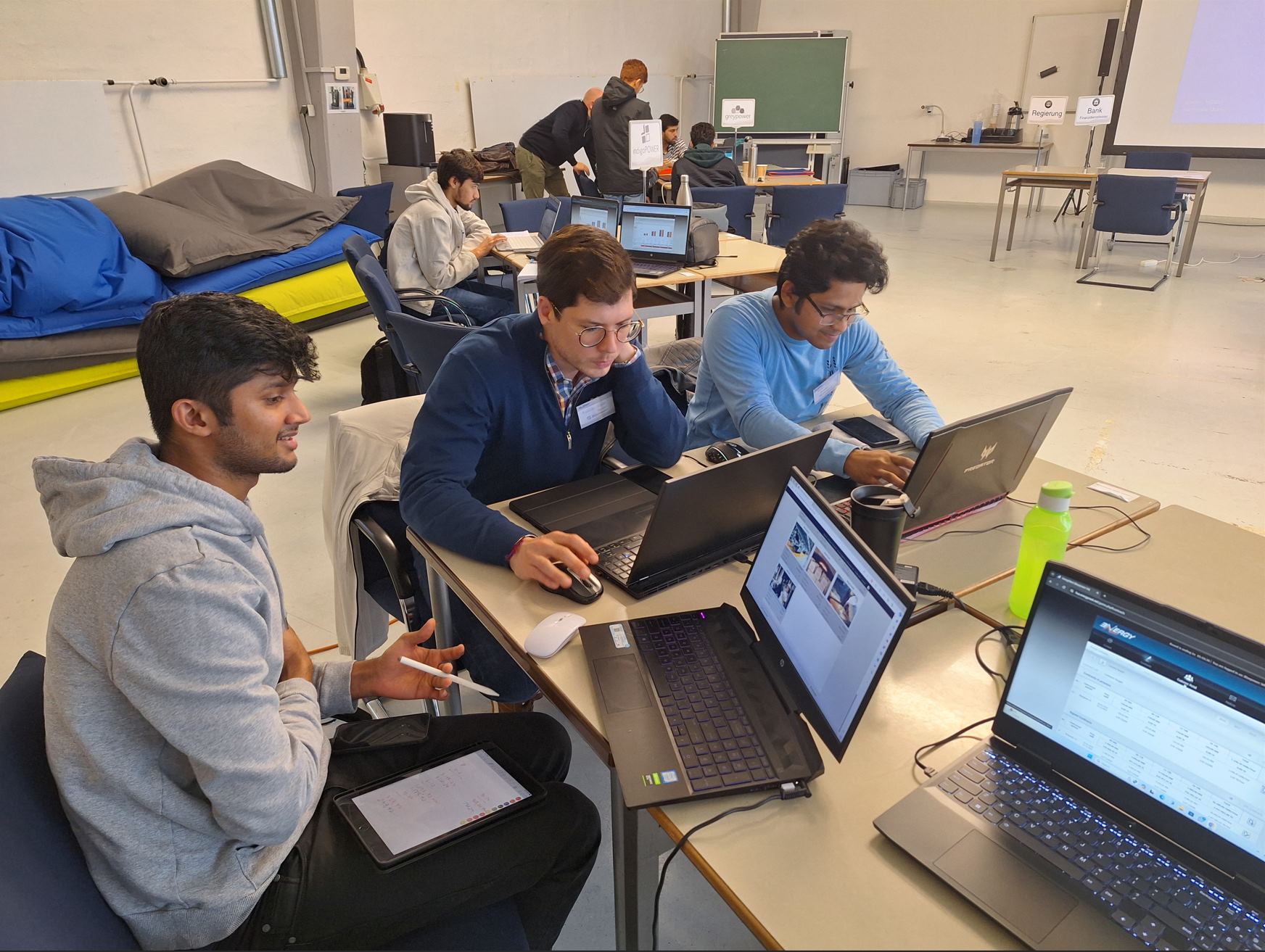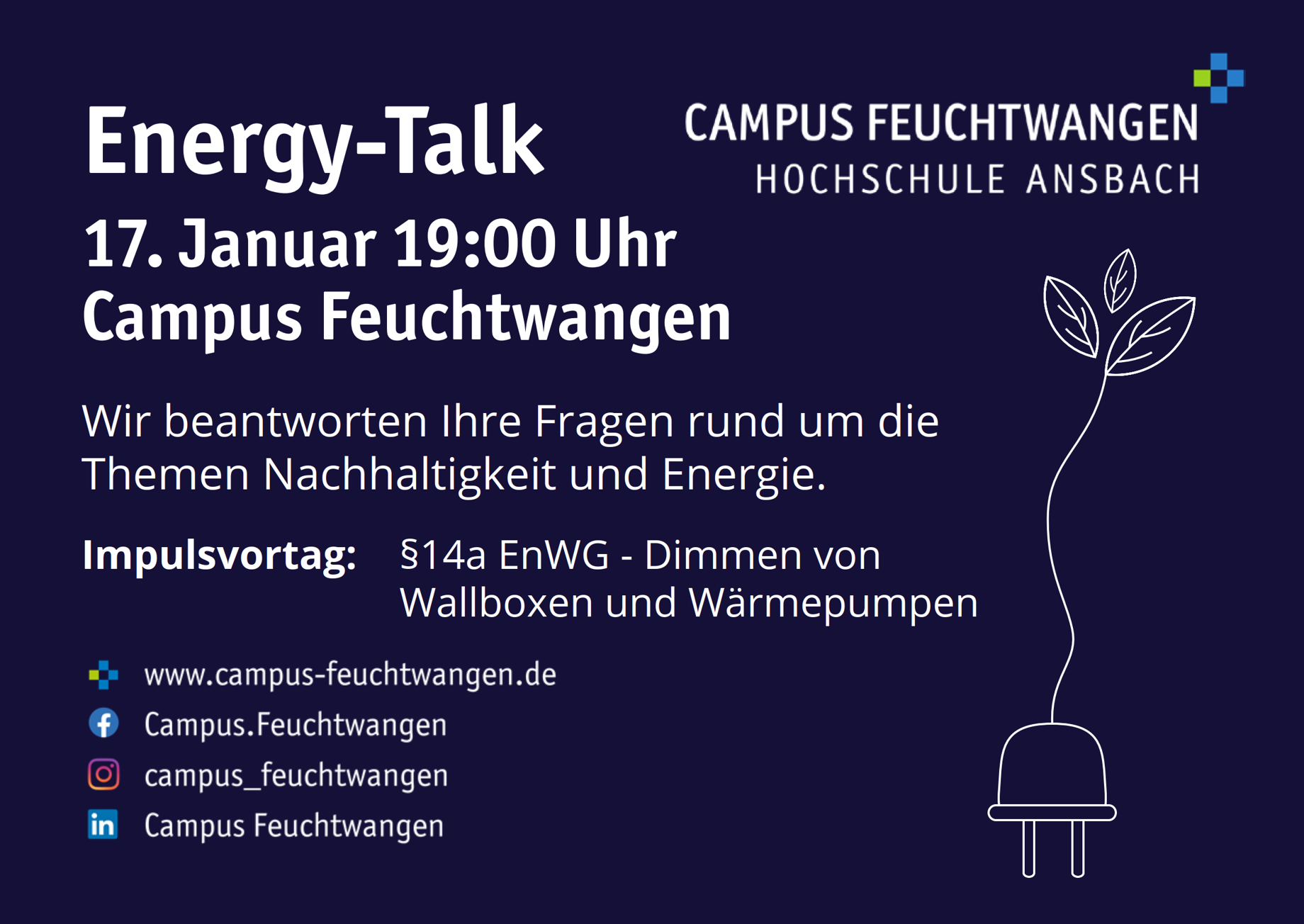Students master the challenges of the energy industry
Practical insights into the energy industry with the interactive business game from EnergyNext
Students on the Smart Energy Systems Master’s degree course at Ansbach University of Applied Sciences’ Feuchtwangen campus have successfully tackled the challenges of the energy industry. They took part in the interactive EnergyNext simulation game, which has been an integral part of the “Energy Systems and Energy Economy” module taught by Prof. Dr.-Ing. This year, the third event of this kind focused in particular on the energy crisis of 2022 and the associated price explosion for gas. The simulation game took place over three rounds and offered students the opportunity to make strategic decisions in the energy sector.

The participating students acted in the role of managers of an energy company and experienced European energy industry history. The story began in a liberalized market dominated by large energy companies and developed into a dynamic trade with the introduction of the energy exchange “EnergyExchange”. Political challenges such as the nuclear phase-out and current issues such as climate change and the coal phase-out shaped the actions of the participants.
The participants took on active roles in competing energy companies, from generation to energy trading and sales. Energy requirements were covered via in-house generation, OTC or exchange trading, while the power plant portfolio was actively managed. The accompanying story also integrated government and bank functions as active roles that implemented energy and financial policy requirements.
The two-day event comprised three consecutive rounds that simulated a period of 15 years. Each round was followed by a reflection phase to translate the results into reality. Finally, the participants presented their experiences and results from different role perspectives at an energy congress.
In the first round from 2016 to 2020, the participants had to secure existing customers, acquire new customers and plan the nuclear phase-out by 2021. The course was set for the second round, in which the expansion of renewable energies was crucial.
From 2021 to 2025, the focus was on CO2 reduction. The increased prices due to supply bottlenecks caused by coronavirus and the gas crisis as an external event presented the students with major challenges. Teams that focused on the expansion of gas-fired power plants in the first round had a harder time, partly due to efficiency increases and cost reductions in renewable energies.

With the phase-out of nuclear power and the pressure to reduce CO2 emissions, the teams in the third and final round (2026 to 2030) increasingly focused on battery storage and hydrogen under the motto “Sustainability is the Future”. The increasing weather fluctuations caused by the climate crisis made the efforts even more difficult.

